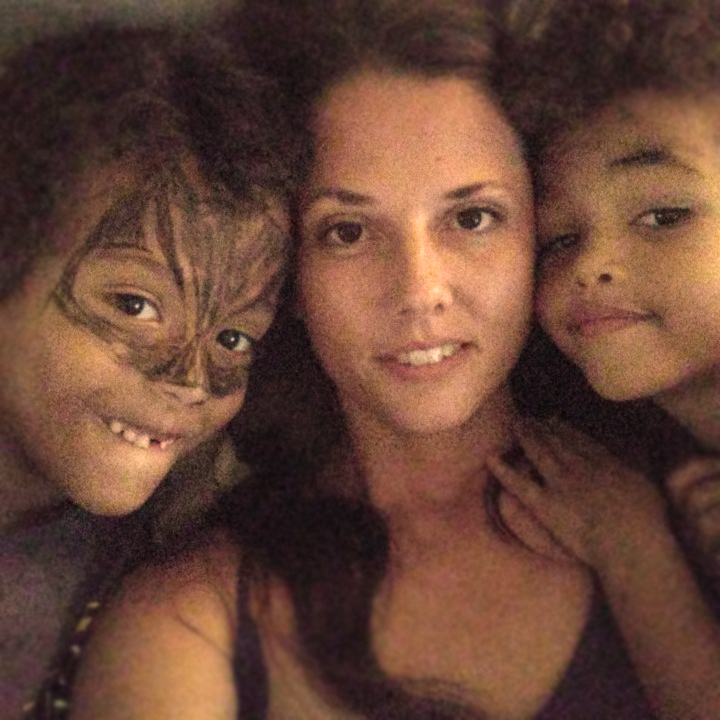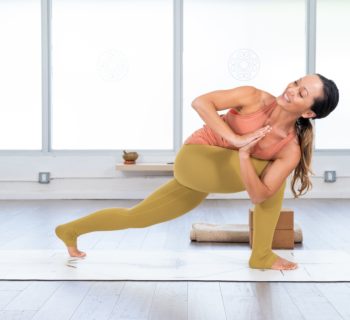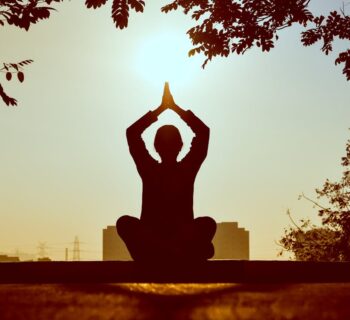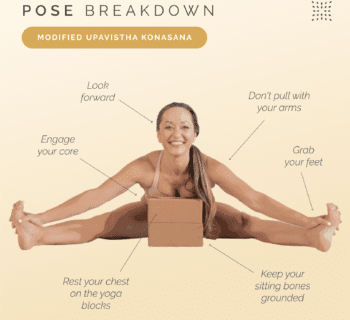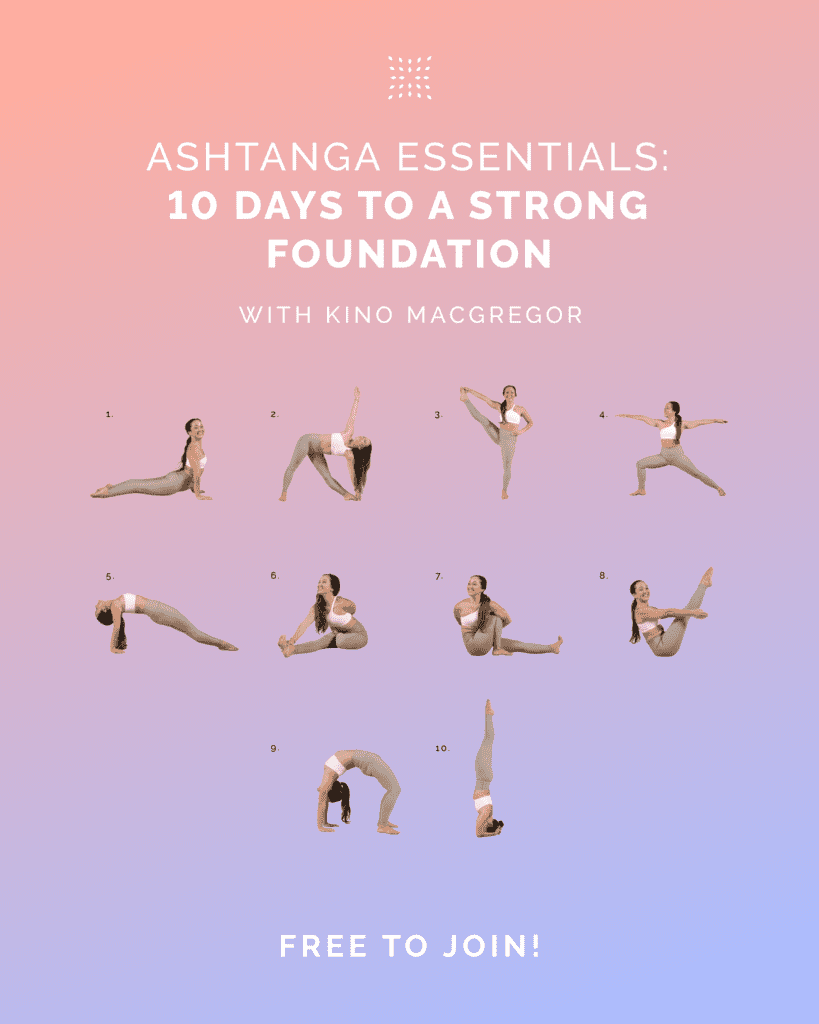I am a white mother of black boys. This gives me a certain perspective in the conversation of race. I have to be mindful and aware of my whiteness and at the same time I have a responsibility to their blackness. I am far from an expert, but I’d like to share some thoughts.
I was recently sharing with someone close to me, a white mother of white children, the conversations I am having with my boys. We have been speaking about identity. How they see themselves with parents of different races and how the world sees them. It is important for them to know that even though they are of my body, a white body, the world will not see their whiteness, it will be much more comfortable identifying them by their darker skin. I have been working to empower them, telling them that who they are, regardless of other’s perspectives, is amazing and powerful and beautiful and that they matter.
We have been talking about racism. They are aware of slavery, and segregation, and Martin Luther King Jr. and that his dreams are not yet realized. We have talked about the thoughts, beliefs, and behaviors of racists and the emotional and behavioral reactions to acts of racism. Do they understand it? Have they experienced it? What would it look like if they did? How would they react? How do they feel about it?
When scenes of protests all across the nation show up on the TV screen we talk about them and why they are happening. We talk about current systems of oppression including the behaviors of some police officers and people in positions of power. My youngest looked at his father and cried “Daddy! Don’t go outside!” He was afraid for his dark skinned father, afraid the world would hurt him. So I took them to a protest, I took them to a rally, I took them to local events to show them that people are standing up, calling for, fighting for their equality, their futures. That it is good.
This other mother, with tears in her eyes, asked “What can I do?” I took her question to be directed at me personally, my personal experiences, and I answered that there was nothing for her to do – they were my conversations to have. I was wrong. More on that later. More recently I was speaking to another dear friend, another white mother of white children, who was trying to understand the accusation that white people are the problem. She’s been observing anger, judgement, even hatred directed against white people by BIPOC, and she named it racism against white people. She mentioned that she didn’t want to have to have this conversation with her kids.
It brought up so many thoughts for me. Her interest in sincerely examining the issues and her own involvement is what motivated me to write this. If you share a desire to understand, to know better and do better, please continue.
First of all, racism involves an ideology of superiority/inferiority and includes, in fact depends on, a dynamic of power. If you don’t have the power, you cannot be racist. (massive discussion for another time) Judgement, anger, accusation, and hatred directed at white people by BIPOC is a reaction to the treatments that are systematized, institutionalized, and sanctioned by default and by the passive acceptance of the majority (white) population.
More importantly, when you are the recipient of this type accusation, when you feel hated for being white, I suggest that you acknowledge the feeling, take it all the way into yourself, accept it, own it. How does it feel to have that energy directed at you because of our race, something you didn’t choose, maybe because of something you didn’t do and in fact don’t agree with yourself. You are not racist, yet you are hated. Your experience, briefly, in that one or those few instances, is a tiny drop compared to the ocean of experiences BIPOC have had for generations, hundreds of years. You are experiencing it for a moment. It is the reality of their existence and has been for far too long. That alone should inspire in you compassion for their struggle, and understanding of their pain, even their anger. If you are frustrated, fatigued, or angry about the conflict and tension of this time in society around the issue of race imagine how they must feel. You are tired of being targeted? They are freaking exhausted.
A response of fear of the black lives matter movement, of black anger, of the protests is, at its root, an acknowledgement of the wrongs done to them, perhaps even a sense of guilt. “Will they do to us what we’ve done to them?” Again, a feeling worth unpacking for the insight it may give you into the experiences of BIPOC for the past five hundred years in this country.
Own it all.
Regarding whether or not we, simply by being white, are the problem. I say probably yes. You may not believe in racist ideologies, you may even recognize that most, if not all, systems in our society are set up to benefit the majority to the detriment of minorities. Participating in the status quo serves the maintaining of the status quo. If the status quo is racism and you are not actively working to dismantle it, then yes, you are the problem. As Angela Davis said, “It is not enough to be non-racist. You have to be antiracist.” There is also a book on the subject: How to be an Anti-Racist by Ibram X. Kendi. I recommend it.
So what can white mothers of white children do? How can you participate in the dismantling and rebuilding of a society? Do the difficult, uncomfortable, unending work of identifying your own personal bias and deeply seated beliefs. Then, talk to your children just as I have to talk to mine, as all mothers of children of color have to talk to theirs. Recognize that not having to have these conversations with your children is your privilege. But if issues of racism matter to you, if black lives matter, if my children matter, not having them isn’t an option.
To my dear friend who cried at the thought of the experiences my children may be having and will certainly have to have many times in their lives, your children shouldn’t be spared these difficult moments, these painful truths. It is your burden too, and theirs.
Mothers of white children, talk to them so that it is as important an issue to them, their lives, and their future as it is to mine and to all black, indigenous, children of color. You, right now, are determining how your children will see mine, how they will treat them, and whether or not systems of racism will survive into the next generation. If it is not something they feel they have to deal with, they may choose not to, and these problems, this conflict, this pain and hatred will continue.
We are all, as parents, on a journey of learning, and screwing up, and changing, and doing the best we can. Let this issue, that of inequality in our society, of racism, be an issue in your home, as it is, essentially, an issue in mine. You, mothers, are raising everyone’s future, not just that of your children but that of every BIPOC they come in contact with. Let your parenting be a part of your activism. Raise anti-racists.
By Angelique Sandas
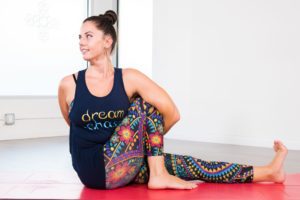
Angelique Sandas is a lifelong student of movement and the interconnectedness of mind body and spirit. It began with gymnastics and dance, initiating her love of movement, the body’s natural way of expressing ideas, emotions, and experiences. Angelique received her B.A. in dance from the University of Minnesota, graduating in 1999. It was during these years that she was first introduced to yoga. In yoga, Angelique’s relationship with movement developed new depth and meaning. Movement became a path to profound inner transformation. She was inspired to share what she was learning and felt drawn to teach. In 2003, Angelique traveled to Thailand to study with Paul Dallaghan in the Ashtanga yoga system as taught by Sri K. Pattabhi Jois and received her teaching certification. She has also studied pranayama and yogic philosophy with Sri O.P. Tiwari of the Kaivalyadhama Institute, India and received advanced anatomy and adjustment training from David Keil. Until 2007, Angelique taught and practiced in Chicago. She then moved to Miami Beach where she worked closely in the Ashtanga method with her teacher and mentor Kino MacGregor as well as Tim Feldmann and Greg Nardi at Miami Life Center. Angelique ran the Mysore program at Shanti Yoga Shala in Philadelphia, PA in 2012 – 2013 and Delray Yoga Shala in Delray Beach, FL. 2014 – 2016. Currently, Angelique runs a Mysore program Ashtanga Yoga Palm Beach at Yoga Path Palm Beach in West Palm Beach, FL. She has had the opportunity to study with the Guru, Sri K. Pattabhi Jois, and continues her training with his grandson, Sri R. Sharath Jois, in Mysore, India. During her 2011 visit to study in Mysore, India, Angelique received Authorization to teach Ashtanga Yoga from Sri R. Sharath Jois. She remains a dedicated instructor and a devoted student of yoga, growing into the potential of the spirit through it’s physical expression.


